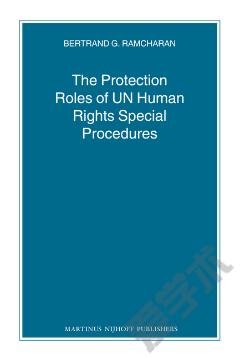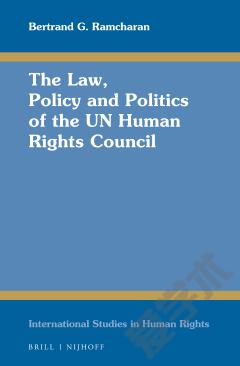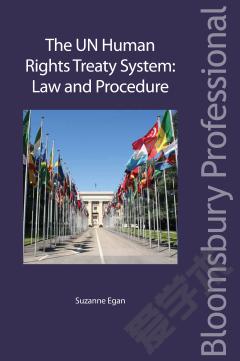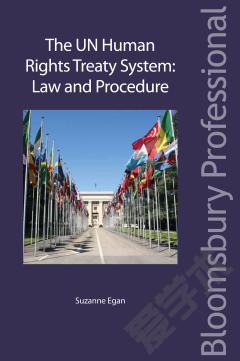In Defense of Politicization of Human Rights —— The UN Special Procedures
----- 捍卫人权政治化
International human rights mechanismsâ efficiency is normally linked to the work of independent experts keen to push the boundaries of accountability, against recalcitrant States determined to defend their sovereignty. As a corollary, progress in this field is associated to the creation and maintenance of political free spaces. Another common presumption, rather than fact, is a belief in a differentiated âNorthâ versus âSouthâ approach to the promotion and protection of human rights, that find solid ground within the prevalent human rights discourses repeated by governmental and non-governmental actors. Through the lenses of the United Nations Special Procedures, this book challenges these and other presumptions informing doctrinal studies, policies and strategies to advance international human rights. In seeking to debunk commonly held views about the role of politics in human rights at international level, this book constitutes the first comprehensive study of the United Nations Special Procedures as a system covering their history, methods of work, institutional status and relationship with other politically driven organs and processes affecting their development. The perspective chosen to analyse the human rights mechanisms most vulnerable to political decisions determining their creation, renewal and operationalisation, casts a new light on the extent to which these remain the cornerstone of global accountability in protecting the inherent dignity and worth of individuals as well as groups.
{{comment.content}}








 京公网安备 11010802027623号
京公网安备 11010802027623号